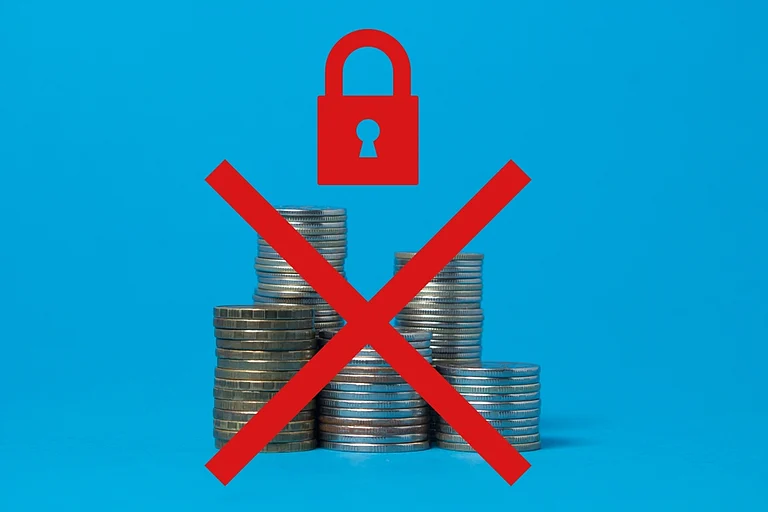Cyber fraud is becoming increasingly common these days, and senior citizens are the ones mostly being targeted through pension scams, fake Aadhaar updates, and by fraudsters impersonating as bank officials, among others.
Recently, a retired school principal, Renu Vishwanath, from Delhi, lost over Rs 4 lakh after clicking on a fake link sent by way of an SMS claiming to update her KYC details. In another incident In Ludhiana, an 80-year-old woman, Sushila Verma, lost Rs. 47.39 lakh, through a digital arrest scam.
With seniors increasingly relying on mobile phones and the Internet for banking, shopping, and social connections, fraudsters are exploiting their vulnerability to these new-age technologies to execute their scams, either by way or coercion, or by gaining trust, or through threats, such as freezing of bank accounts or blocking Aadhaar.
Thus, it is crucial for seniors and their families to learn how to stay safe from online scams and take steps to protect money and personal information from such online threats.
So, here are 10 financial safety checklists that senior citizens could follow to stay safe from online frauds.
Never Share OTPs, CVV, Or ATM PINs: No bank, government office, or payment app will ever ask for your One-Time Password (OTP), card PIN, or CVV number. No bank asks for these details over the phone or through a message.
So, in case you receive any such request, treat it as a scam. Sharing any such information can result in immediate loss of money from your bank account.
Avoid Clicking On Suspicious Links Or Pop-Ups: Messages that claim you have won a lottery or that your KYC is about to expire are common tricks.
They often contain harmful links that can steal your confidential information. Do not click on any link from unknown sources. If you are unsure, visit your bank or service provider directly instead of clicking on any suspicious link.
Use Only Government-Approved Or Trusted UPI Apps: Download payment apps via trusted sources like the Google Play Store or Apple App Store. It is best to stick to widely popular and trusted apps such as BHIM, Google Pay, PhonePe, or bank payment gateway officially released by your bank. Avoid downloading apps that you don't know or have not heard of.
Stay Away From High-Return Investment Offers: Be wary if someone calls you with the promise of doubling your money in a short period.
These promises are made by proposing plans involving gold, property, or digital currency. Many frauds include fraudulent investment schemes or insurance coverage. Always check investment offerings with an authorised representative or visit an official branch.
Don’t Share Aadhaar, PAN, Or Bank Documents Casually: Identity documents like Aadhaar and PAN can be misused for illegal activities. So, avoid sharing them.
Fraudsters could use your documents to take loans in your name. So, share copies of these documents only with verified and trusted agencies, and only where required. When sharing online, use watermarks and avoid revealing full details unless required.
Register For SMS And Email Alerts with Your Bank: Enable SMS and email alerts to stay updated about any transactions being made from your bank account. This helps in detecting any unauthorised activity immediately. Make sure your contact details are always up to date with your bank to avoid any miscommunication or missing important messages.
Use Strong Passwords and Don’t Reuse Them: Avoid using simple passwords like your name, date of birth, or "12345". Use a mix of uppercase and lowercase letters, numbers, and symbols to create strong passwords. Do not use the same password for all accounts. Update passwords regularly and avoid writing them down in easy-to-find places.
Involve A Trusted Family Member Or Friend: If you feel unsure about any financial message or transaction, it would be helpful to consult someone you can trust. Having a second opinion can often prevent fraud, especially in major transactions. Keep someone close informed about your regular financial practices for extra protection.
Use Official Sources Only For Customer Support: Do not search for customer care numbers on search engines, as many fake websites display incorrect contact information. Always use the official bank website or check the number on your passbook, bank statement, or ATM card. Avoid downloading remote access apps unless guided by a known and trusted source.
Report Scams Immediately To Authorities: If you have been scammed or suspect someone is trying to defraud you, report it immediately. You should report any unauthorised and suspicious financial activities being done on your bank account to avoid further loss of money. Call the Cybercrime Helpline at 1930 or file a complaint on official website- cybercrime.gov.in. Immediate action can help in tracking and preventing the fraud and may help recover your money.





.png?auto=format%2Ccompress&fit=max&format=webp&w=768&dpr=1.0)









